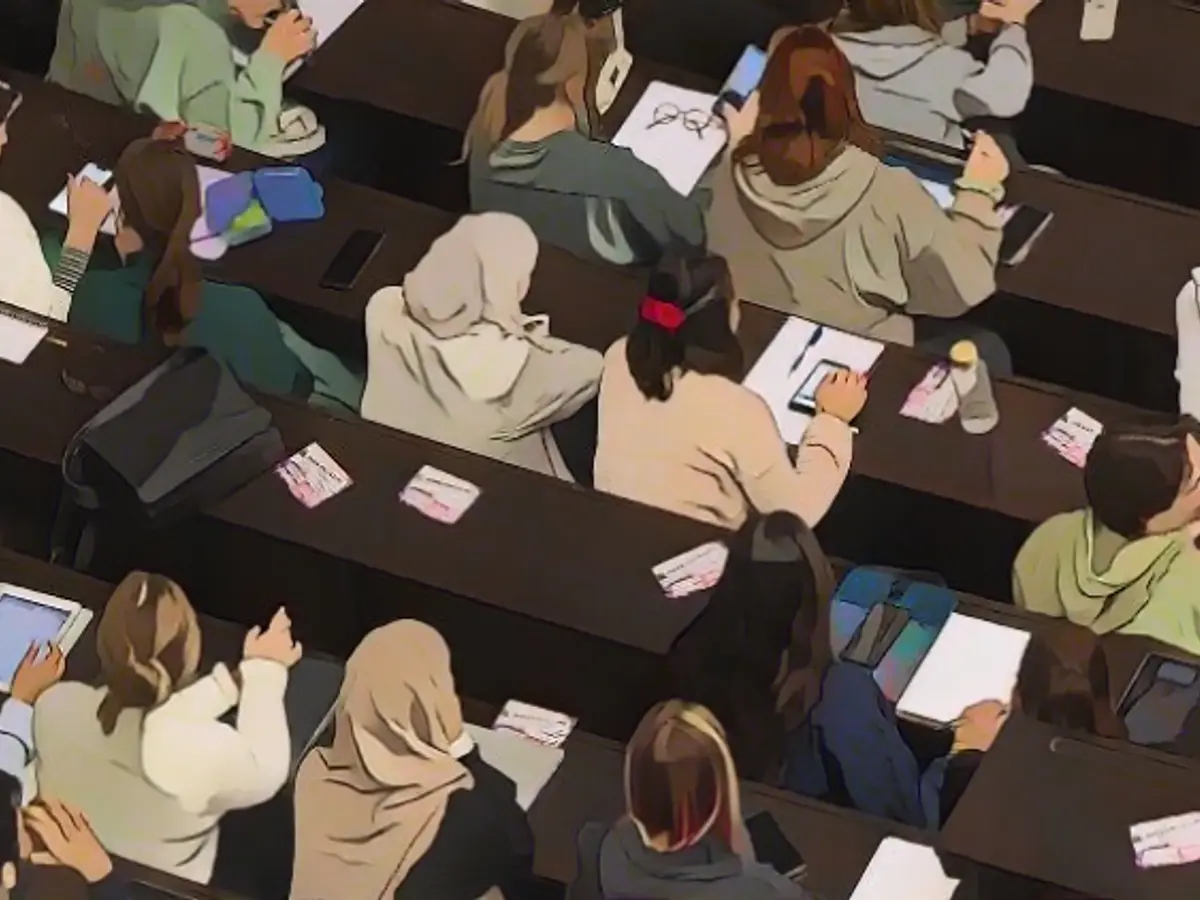Title: The Unseen Financial Realities of Higher Education in Germany
It's a common misconception that state student funding plays a significant role in financing tertiary education in Germany. However, an analysis by the esteemed CHE Center for Higher Education Development revealed this isn't the case for a majority of the country's students.
In fact, only about 16% of the close to three million students currently roaming Germany's educational landscape make use of state grants, loans, or scholarships. This stirred a call for reform from Dr. Ulrich Müller, the study's author, in Gütersloh. He saw the need for action as most students' state offerings were irrelevant, and the emphasis was shifting towards wealth and flexible degrees.
The findings from the study assumed that an overwhelming 90% of students rely on financial assistance from their parents, with more than two-thirds juggling assignments and paychecks from part-time jobs. Delays in reforms of Bafög and high interest rates on KfW student loans have been sources of financial pressure for students, forcing them to take control of their financial destiny.
The CHE Center for University Development's data also revealed significant differences in student financing across Germany's various states.
Addressing these issues, Müller proposed the adoption of a comprehensive bundled federal study grant. This move would eliminate confusion, adapt to the current realities of students' lives, and provide financial security. Meanwhile, the coalition government vowed to reform the current Bafög system, making it less dependent on family income and widening the scope of recipients through higher allowances.
Further Insights
- The need for comprehensive reform in BAföG cannot be overstated. Many students still live precariously, and only a small proportion receive any benefits under the existing system. The Left, the Greens, and the SPD have pledged to regularly adjust BAföG funding based on living costs.
- BAföG's €380 monthly rent allowance is widely recognized as inadequate. There is a demand for this amount to be frequently readjusted to mirror inflation and income developments.
- The existing housing allowance needs augmentation, and student accommodation should be prioritized. The "Junges Wohnen" initiative, which assists student and trainee housing demand, should be formalized as a permanent program.
- Modernization of university infrastructure is urgently needed. A significant backlog in building repairs, totaling €74 billion, requires cross-governmental attention. Energy rehabilitation for teaching and research facilities and investments in climate-neutral campuses can contribute to this cause.
As the German education landscape continues to evolve, addressing these financial challenges becomes increasingly vital for equitable access to higher education.






